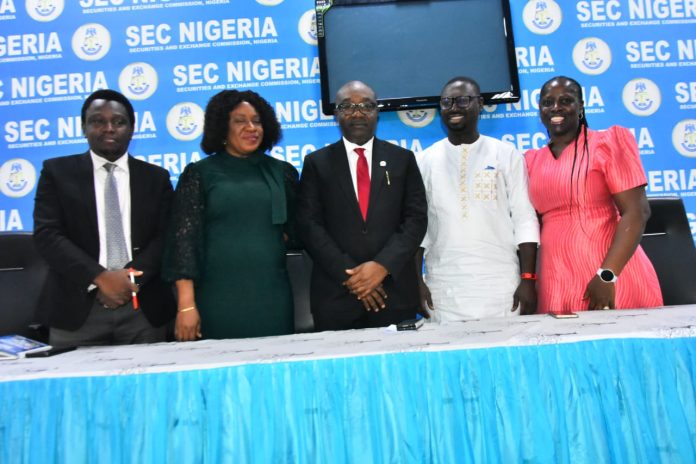The Director-General of the Securities and Exchange Commission (SEC), Dr. Emomotimi Agama, has emphasized the pivotal role of a vibrant capital market in achieving Nigeria’s $1 trillion economy goal.
Speaking at the 2024 SEC Journalists Academy in Lagos on Tuesday, Agama highlighted the need for collective efforts from policymakers, businesses, and the media to drive economic growth.
“Achieving a $1 trillion economy is not just an aspiration; it is essential for Nigeria’s prosperity and resilience,” Agama said. “The capital market, as the financial backbone of our economy, is positioned to lead this transformation.”
He noted that despite macroeconomic challenges, limited investor participation, and regulatory bottlenecks, the capital market has already demonstrated its capacity to fund critical national projects, particularly through instruments like sovereign bonds and Sukuk.
Agama cited the success of Sukuk bond issuances, which have financed infrastructure development across Nigeria’s six geopolitical zones, as an example of the market’s capacity to reduce dependence on external borrowing while fostering job creation and regional integration.
Additionally, innovative funding tools such as green bonds have supported Nigeria’s transition to a low-carbon economy, aligning infrastructure development with environmental sustainability goals.
The SEC DG highlighted key achievements in the market, including the listing of major firms like Dangote Cement and BUA Group and the 2021 MTN Nigeria public offering, which attracted significant local participation and showcased the market’s growth potential. As of December 2024, he said, the Nigerian Exchange Limited’s total market capitalization had reached N60 trillion.
Agama also underscored the democratization of wealth creation through retail bonds, exchange-traded funds, and fintech platforms that simplify access to investments, broadening financial inclusion.
“The Federal Government’s introduction of the Savings Bond has expanded the retail investor base, enabling ordinary Nigerians to benefit from the nation’s economic growth,” Agama said.
He added that sub-national governments, including Lagos and Ogun States, have leveraged the bond market to fund infrastructure, healthcare, and education projects, fostering transparency and accountability.
To further unlock the capital market’s potential, Agama urged stakeholders to prioritize market liquidity, listing simplification, and innovation through fintech. He also called on journalists to amplify the capital market’s value by shaping narratives that inspire public trust and participation.
“Your ability to present accurate and engaging stories is crucial in educating Nigerians and driving the confidence needed to grow our market,” Agama said.
He concluded by reaffirming the SEC’s commitment to building an inclusive, dynamic, and globally competitive capital market that underpins Nigeria’s economic aspirations.














